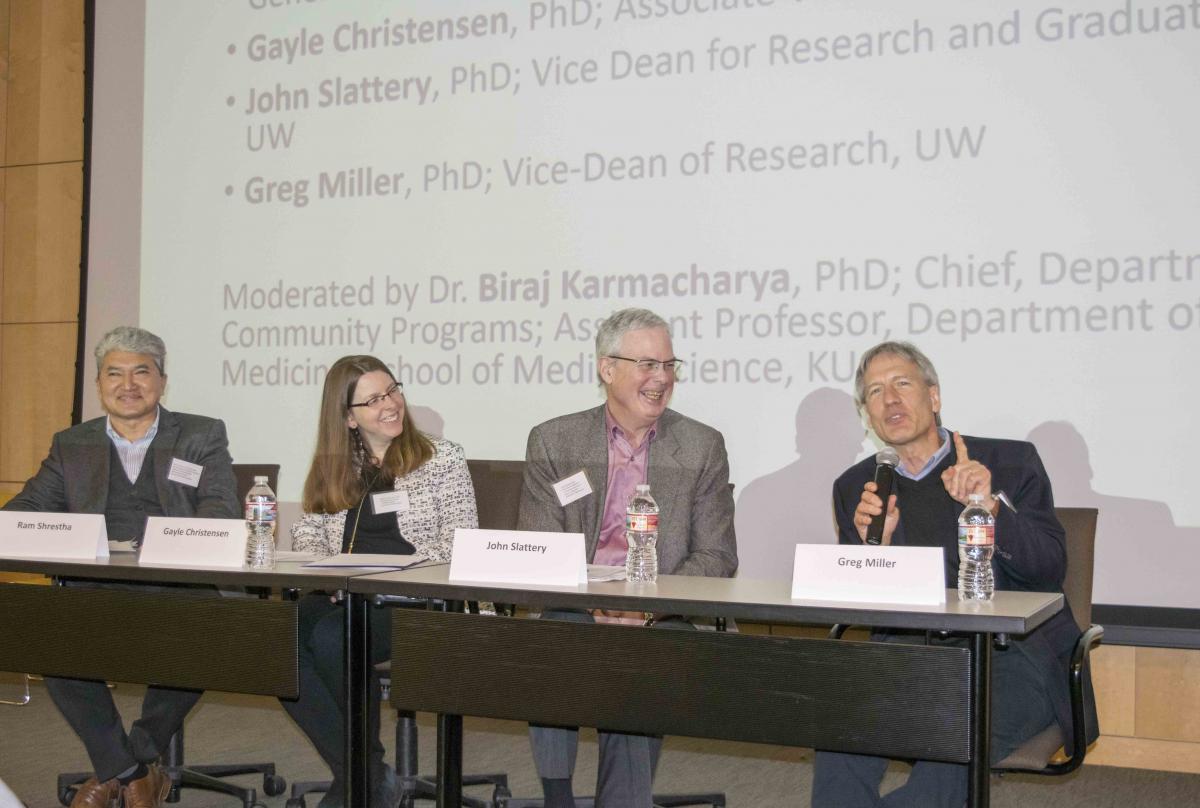
How can mutually beneficial global collaborations help find solutions to real-world problems? What are innovative approaches to sustainable collaborations?
The recent "UW-Nepal Partnerships in Health Innovation: Multi-Disciplinary Collaborations to Advance Population Health" symposium tackled such questions in panel discussions featuring UW and Kathmandu University faculty from multiple disciplines.
The symposium, hosted by the University of Washington Department of Bioengineering and UW Department of Global Health, with UW Global Affairs and the UW Nepal Studies Initiative, was held April 18 in Seattle. Together with a high-level delegation from Kathmandu University including Dr. Ram Shrestha, MD, Vice Chancellor, Kathmandu University (KU), participants discussed how to further foster multidisciplinary collaborations that advance technical innovation for global health in Nepal.

“Partnerships and innovation are the bedrock of everything we do in global health,” said Dr. Judy Wasserheit, MD, Chair of UW Department of Global Health. “Through mutually beneficial relationships built on trust we can have greater impact.”
"Universities should create and disseminate knowledge. But we can redefine the role of universities to also implement knowledge. Through collaborating with one another we can change the lives of others," said Dr. Shrestha. As well as Vice Chancellor of Kathmandu University, Dr. Shrestha is the founder-director of Dhulikhel Hospital in Nepal, which he grew from a two-room community hospice to a state of the art community hospital renowned for being accessible to the poor, providing quality health services at affordable rates. Dhulikhel Hospital and the KU College of Medical Sciences provide care to over 550,000 patients a year for Rs 25 (US 24 cents) per patient, Rs 250 (US 2.38) a day for hospitalization and surgeries all costing less than Rs 25,000 (US 238).
“Looking at real problems kicks us out of our disciplines, and builds our capacities at UW,” said Dr. John Slattery, Vice Dean for Research and Graduate Education, UW School of Medicine. “Universities are the opposite of industry – we’re built to leak information. It’s the right thing to do and it’s heart-warming,” he added.
The day-long symposium included panel discussions on the Dhulikhel Heart Study, a collaboration with UW that seeks to understand risk factors for cardiovascular disease and the development of new devices for use in low-resource settings; design activism and landscape architecture; water insecurity and indigenous peoples; and opportunities for future collaborations. UW students and faculty also shared their research from 15 UW-Nepal projects in a poster session.
Since 2012, UW-Nepal partnerships in health innovation have included 12 Nepali students studying at UW, 33 Nepali researchers visiting UW, 43 UW researchers visiting Nepal, and 61 UW students participating in training experiences in Nepal.